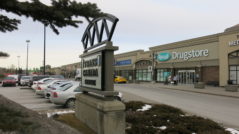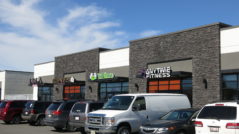Many small business owners in Calgary lease their commercial space. A lease is a contract which should not be taken lightly. You should be familiar with the lease terminology to better understand what you are signing.
Here are some of the key terms to help you familiarize yourself when reviewing a commercial lease.
Parties
Most leases contain a reference to the signatories of the lease such as “Lessor and Lessee” or “Landlord and Tenant”. Make sure you verify that you verify the business legal name is used correctly.
The term of the lease should use your company legal name and not your personal name. If you are a corporation and your personal name is used on the lease, then you would personally assume liability for any legal issues.
Premise Clause
This clause should also be examined carefully especially if you are only leasing a portion of the building. This clause should clearly outline what area(s) you are allowed to use and access.
Exclusive Use and Use Clause
These clauses are especially important for any small business owner. These clauses can be both broad and narrow when it comes to definition. They outline what business activities you are prohibited from performing or products you can sell.
These “use” clauses also can perform the reverse and limit what other businesses in the leased premise can sell. This can have a direct bearing on your competitive ability.
Term Clause
This clause defines the term or length of your lease. However, you should be aware that many lease terms commence from the moment you sign. This means that although you might not have to start paying immediately, you could end up assuming other responsibilities which can affect your start-up budget.
Term dates should clearly specify when the rent is due, or when you can enter the premise to begin setting up your business. It should also identify what date you are required to carry insurance and a date when you can open your doors for business.
Rent Clause
The rent clause should also be carefully examined. This clause should also carefully spell out any costs which you are expected to incur above and beyond the rent itself. This clause can also spell out any potential savings for you such as “tenant improvement allowance.” This clause may also include rent increases which is an area which may be negotiable depending on how the landlord calculates the manner of the rent increase.
Alterations Clause
This is a very important segment of any commercial lease. This spells out who is going to make what alterations to your commercial space and who is responsible to pay for these alterations including who will be performing the work.
Utilities and Maintenance Clause
This clause spells out what you are expected to do to maintain your business such as cleaning services and what amount you are expected to pay for your portion of the utilities.
Insurance Clause
Your insurance needs as it relates to your property, inventory and especially for liability also needs to be clearly defined. You are best advised to use the services of a commercial insurance broker to help you identify your particular needs. The landlord also has insurance but many key aspects of their coverage will not apply to your business so you must ensure you have proper coverage.
Leases contain many clauses which can have a detrimental effect on your bottom line if you don’t understand what you are signing. Always ask lots of questions and clarify anything you aren’t sure about.
Photo by Vitroid












